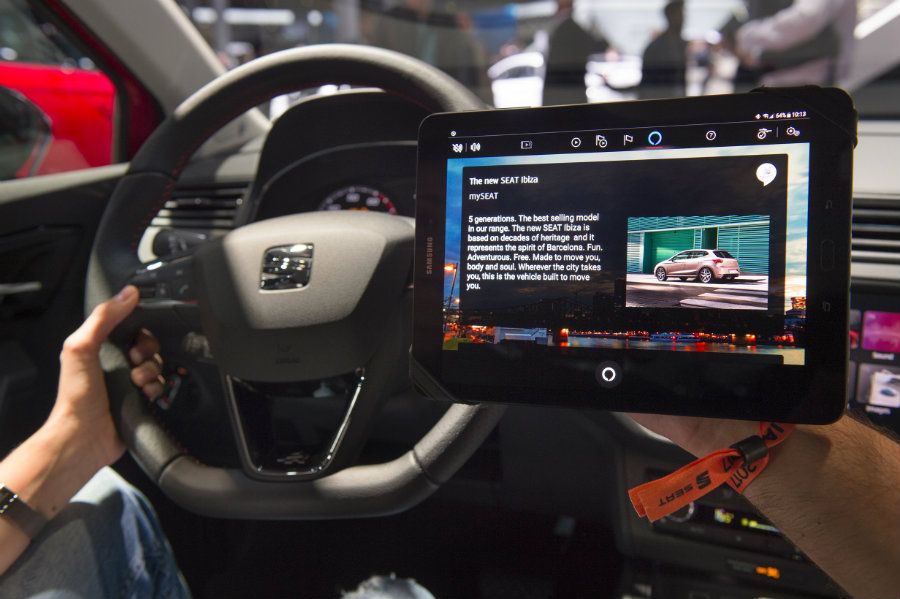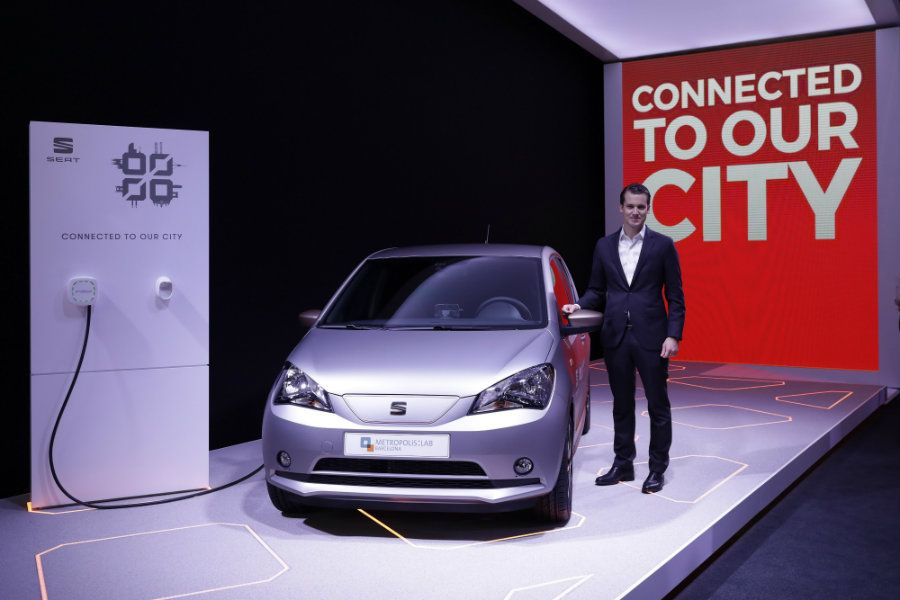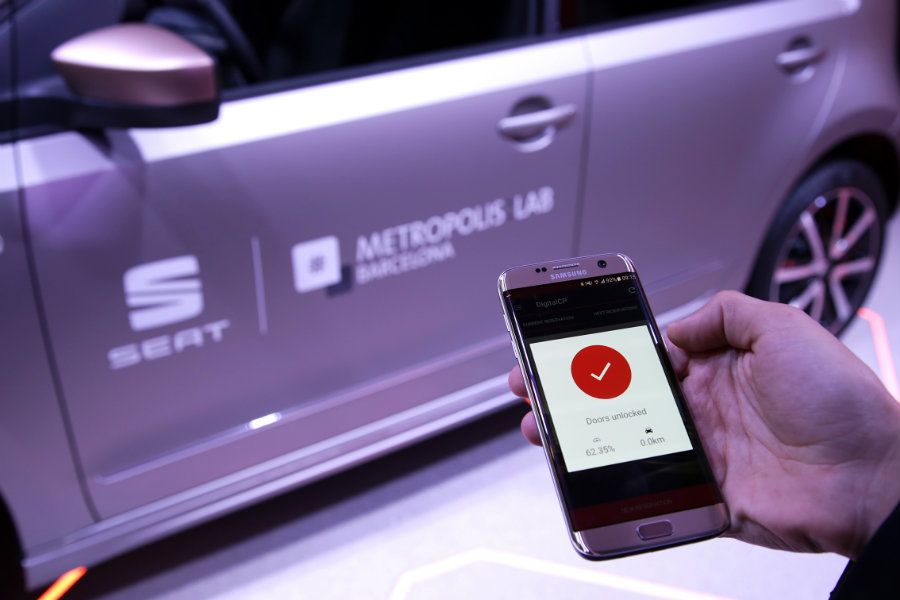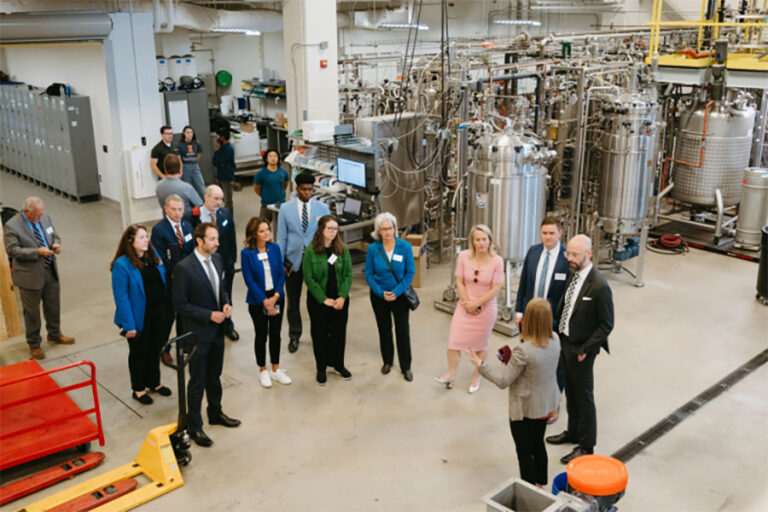Spanish car manufacturer SEAT occupies pole position in the race to develop connected cars. Buzz speaks to Fabian Simmer about how the company is responding to changing demand from its young customer base and how it is innovating for the future.

How do you think digital technologies will transform the role of cars? How is SEAT preparing for this?
This is the biggest disruption in the 130 years of the automobile. It is surprising that it came so late, because digital started in the 1960s. Every five to ten years there has been a different wave in which a new sector was disrupted by the digital industry, but until recently the automotive industry was left out.
Digital disruption started around 2010 when new competitors entered the market, outside companies who had never thought of automobiles or mobility before. They started to get into the sector and began to shake it up.
At SEAT, our contribution to this movement is important because our customers are 10 years younger than the average customer in the automotive sector and are already demanding this new type of connectivity. Digital is very important for them. That is why we have become frontrunners in this space.
How will these changes impact urban mobility?
There are four separate trends: electrification, autonomous driving, connectivity, and mobility services (especially for urban areas where young people who don’t want to own a car and would like to share one can use different mobility alternatives). At SEAT, we are concentrating on the last two trends – mobility services and connectivity.
How are you increasing the connectivity of your vehicles?
We have already integrated the Alexa personal assistant from Amazon into the Ateca and Leon models, while other manufacturers were targeting achieving this in 2020. Because the Amazon Echo is not designed for use in the car, we worked with Amazon to get the technology into the car in a new way.
Development cycles in the future are going to be shorter than so far in the industry because people are going to have cars that need to be updated, much like smart phones. You will be able to update them and individualise them. We are trying to do these things already.

What do you think are SEAT’s main competitive advantages in digital?
Digital is important for us because of the age of our customer group. When we talk with Google and Apple, they tell us that we have one of the highest rate of users of Android Auto and Apple Car Play. This is something that is essential to our customers, which is why we have to start moving fast.
When digital came into the automotive world, we thought it was a good opportunity for us because of our size and agility. We want to position ourselves within connectivity and digital, first of all because it is a prerequisite for the four trends that I mentioned earlier, but also because we feel that we can serve as a gateway for the VW Group, which sells more than 10 million cars a year.
We are working closely with a lot of the leading tech players. They like working with us because we are less bureaucratic. We have established an Easy Mobility Committee to help make decisions. We do not have to go to 20 different meetings to get an idea approved. Tech companies want to partner with manufacturers who are really fast-moving, who are not doing Power Point presentations for two years before they start developing an initial prototype.
What are you working on in the field of car sharing?
We want to concentrate on concrete things at the beginning. Then, once we have done some pilot projects, we are going to look at how we are can scale them in Barcelona. When it works here, we will try to scale it to the rest of Spain, and then, if it works there, to the rest of Europe.
For example, we have put together a fleet of 20 cars with digital keys for our employees. People say that one of the biggest roadblocks to car sharing is that you have to meet someone to give them the key. That is why we used a digital key solution. We had over 1,000 requests in the first few days of the project. Next year, our app will be able to suggest to employees who live close to each other that they could share a car.

How closely do you work with start-ups on digital innovations?
We have been involved in a series of initiatives this year with start-ups. The first one was with the Conector programme, in which we had start-ups working at SEAT premises. We were mentors to them, helping them progress with their projects.
One of the start-ups we work most closely with is called BeMobile, who are developing connected car solutions in our Metropolis Lab, our new centre in Barcelona which is focused on urban mobility. Start-ups in the Metropolis Lab work in a completely different way to a large automotive company. They are focused on trying out innovative ideas in a very fast manner to see if they working. If the idea does not work, then they either improve or discard it and move on.
We visit start-ups not only in Barcelona but also in Germany and elsewhere. We are trying to be very active in this field because we think that not only can start-ups in this space learn from us, but that we can learn from them.
What do you think will be the future of driving?
My son is 3.5 years old and I do not think that he will have to get a driver’s licence. There will be many young people living in urban areas who are not going to own a car. There are already young people who are more interested in having a phone than a driver’s licence. However, with the trend for autonomous driving, cars may also become an extension of home. There will still be a part of the population that wants its privacy
We cannot say now in which direction the future will go. I think it will be a mixture of both these trends. The most interesting thing in the future will be zero fatalities. I am looking forward to these developments. It is a huge leap forward and it is incredibly inspiring to be a part of this change for the future![]()









